Neighbors,
To save you time and help you get the most out of Nextdoor, we’ve put together the following series of suggested posts that you can quickly and easily share on Nextdoor with neighbors in your service area(s). Please also see our COVID-19 Engagement Plan, which answers frequently asked questions and best practices.
As a proud CDC Emergency Partners Information Connection (EPIC) partner, all of us at Nextdoor would like to call out and thank the team at the CDC who put together the helpful COVID-19 web resources we used to build the suggested post below.
Thank you, CDC neighbors!
Check back often as we will be updating this article with new suggested posts.
Suggested posts:
- Slow the spread, stay at home, except for essentials
- Why and how to wear a cloth face covering
- Have you asked for or offered help on Nextdoor’s Help Map yet?
- What should you do if you have or think you may have COVID-19?
- How to clean and disinfect your home
- How to protect yourself from COVID-19 when refilling prescriptions
- Ways to cope with stress
- Feeling anxious or depressed? Call the Disaster Distress Helpline: 1–800–985–5990
- Is your child worried about COVID-19?
- Going to a park or recreation facility?
- How to file for unemployment
- Birthday physical distancing + social connection
- Working from home? Here are some cleaning tips
- Pregnancy and breastfeeding during COVID-19
- Shopping for food and other household essentials
- Safety tips for accepting deliveries and takeout orders
- Safety tips for banking and getting gasoline
- Subject: Safety tips for going to the doctor or getting medicine
- Take the #ICanHelpChallenge
Subject: Slow the spread, stay at home, except for essentials
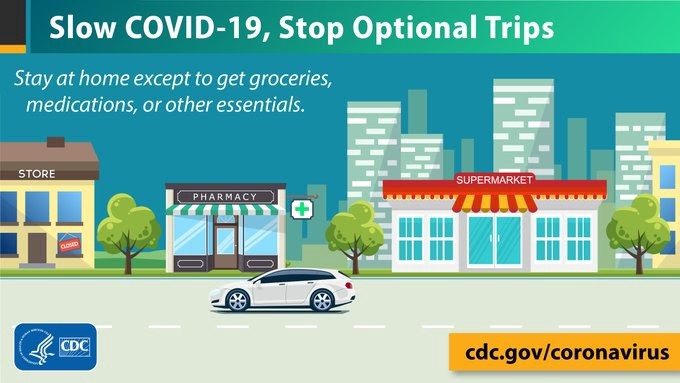
To slow the spread of COVID-19, stay at home except to get groceries, medications, or other essentials. Avoid outings you don’t have to take.
It is working to flatten the curve, and we all need to keep it up!
Subject: Why and how to wear a cloth face covering
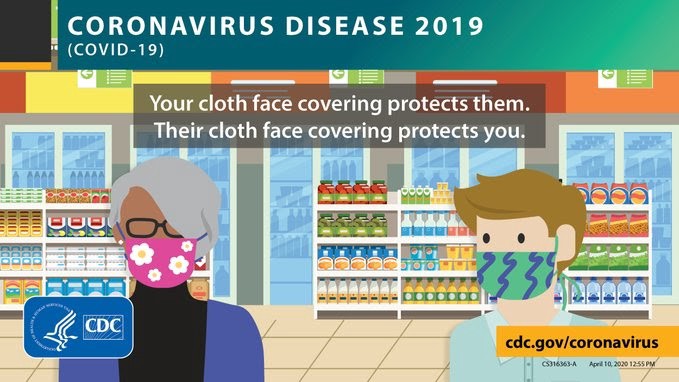
Neighbors,
Growing evidence suggests COVID-19 can spread before people show symptoms (pre-symptomatic) and from people who have coronavirus but never show symptoms (asymptomatic).
The CDC recommends wearing cloth face coverings in public settings where other social distancing measures are difficult to maintain (e.g., grocery stores and pharmacies), especially in areas of significant community-based transmission.
Cloth face coverings should not be placed on young children under age 2 or others unable to remove the mask without assistance.
A CLOTH FACE COVERING SHOULD:
1) Fit snugly but comfortably against the side of the face
2) Be secured with ties or ear loops
3) Include multiple layers of fabric
4) Allow for breathing without restriction
5) Be able to be laundered and machine dried without damage or change to shape
https://www.facebook.com/CDC/videos/531756597515913/
QUESTIONS & ANSWERS:
Should cloth face coverings be washed or otherwise cleaned regularly? How regularly? Yes. They should be routinely washed depending on the frequency of use.
How does one safely sterilize/clean a cloth face covering? A washing machine should suffice in properly washing a face covering.
How does one safely remove a used cloth face covering? Individuals should be careful not to touch their eyes, nose, and mouth when removing their face covering and wash hands immediately after removing.
HOW TO MAKE A FACE COVERING:
Click here to download an informative document on how to make your own facemask — https://www.dropbox.com/s/evzj7xd6s3itdvz/DIY-cloth-face-covering-instructions.pdf?dl=0
Poll: Have you asked for or offered help on Nextdoor’s Help Map yet?
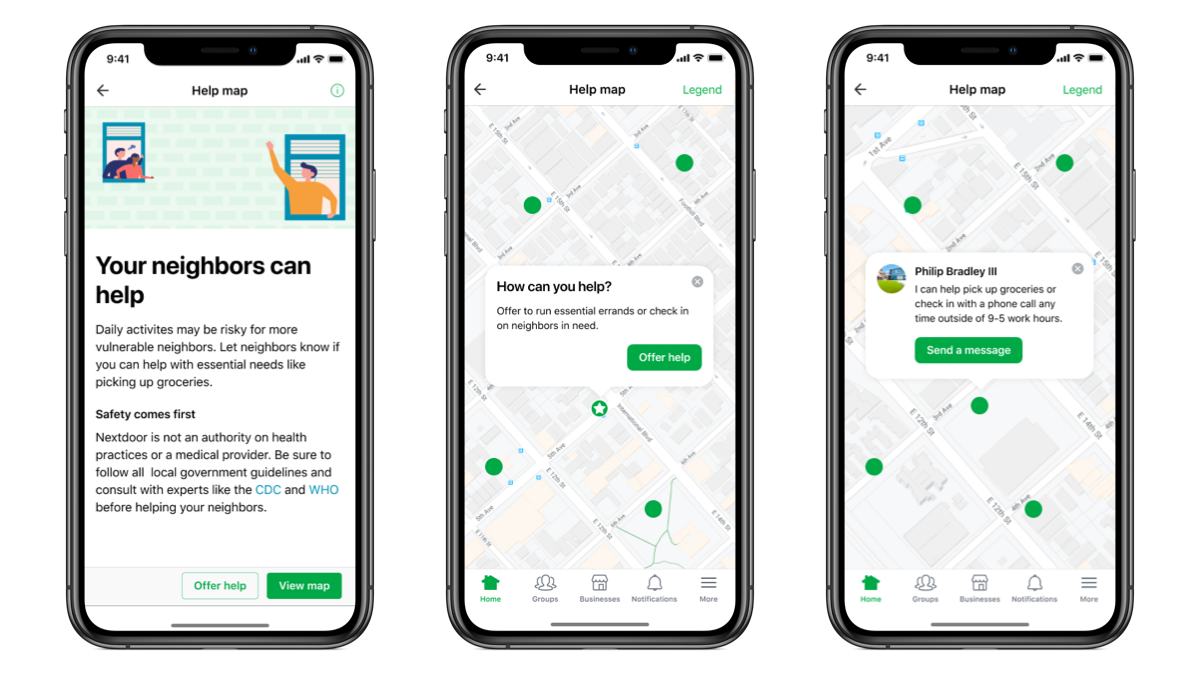
For “Ask a question”:
Have you asked for or offered help on Nextdoor’s Help Map yet?
For “Add a poll description”:
Neighbors,
Now and in the days to come, routine activities may be risky for older adults and people of any age who have serious underlying medical conditions. That’s why we’re encouraging the use of Nextdoor’s Help Map.
We all need to get comfortable with asking for help. And if you can help others, do it! The Help Map is an interactive map connecting those who wish to offer help with neighbors who need assistance. For example, picking up groceries and medications or checking in via telephone once a day are great ways to lend a hand.
Here is the link to the Help Map where you can offer and ask for help → https://nextdoor.com/help_map/
Watch this short video to learn about the Nextdoor Help Map → https://vimeo.com/402356553
For “Add a choice” fields:
- Yes, I have, thank you
- No, not yet
- I’ll pass, thanks
- Other (if you wish, leave your reply in the comments)
Subject: What should you do if you have or think you may have COVID-19?
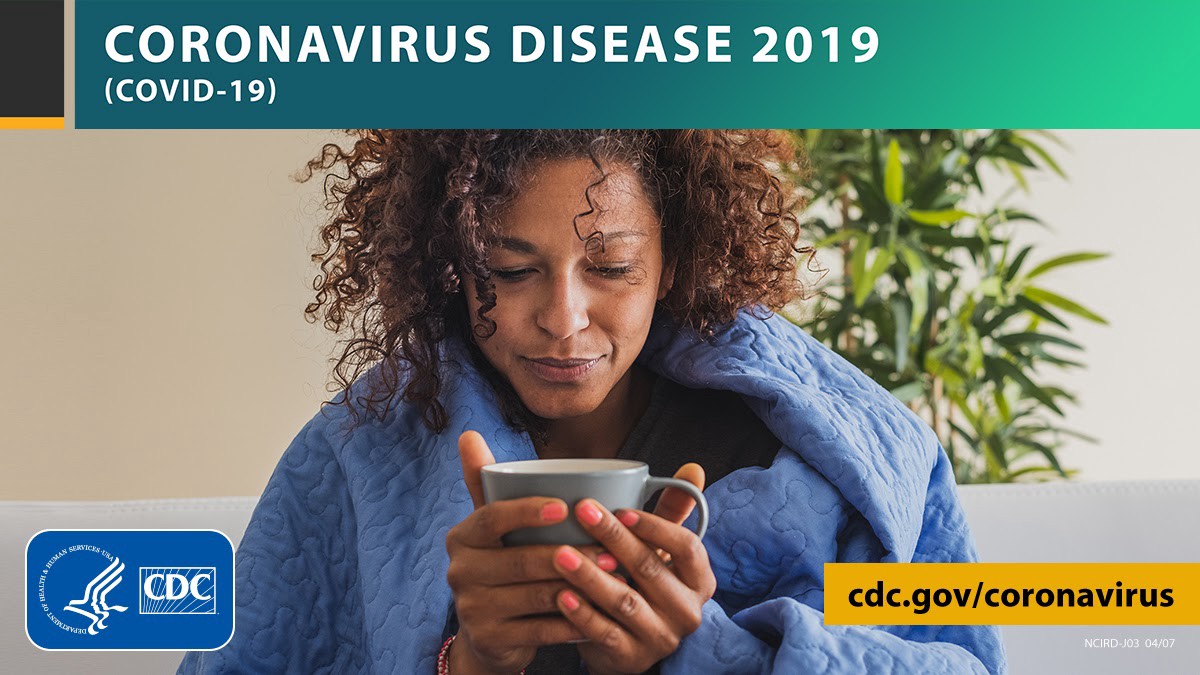
Neighbors,
If you are sick with COVID-19 or suspect you are infected with the virus that causes COVID-19, you should take steps to help prevent the disease from spreading to people in your home and community.
If you think you have been exposed to COVID-19 and develop a fever and symptoms, such as cough or difficulty breathing, call your healthcare provider for medical advice.
Below are extensive guidelines laid out by the CDC.
STAY A HOME EXCEPT TO GET MEDICAL CARE
Follow the steps below to care for yourself and to help protect other people in your home and community.
- Do not leave your home, except to get medical care. Do not visit public areas.
- Take care of yourself. Get rest and stay hydrated.
- Stay in touch with your doctor. Call before you get medical care.
- Be sure to get care if you have trouble breathing, or you have emergency warning signs listed below if you think it is an emergency.
- Avoid public transportation, ride-sharing, or taxis.
SEPARATE YOURSELF FROM OTHER PEOPLE AND PETS IN YOUR HOME
As much as possible, stay in a specific room and away from other people and pets in your home. Also, you should use a separate bathroom, if available. If you need to be around other people or animals in or outside of the home, wear a cloth face covering.
See COVID-19 and Animals if you have questions about pets — https://www.cdc.gov/coronavirus/2019-ncov/faq.html#COVID-19-and-Animals
MONITOR YOUR SYMPTOMS
Common symptoms of COVID-19 include fever and cough. Trouble breathing is a more serious symptom that means you should get medical attention.
Follow care instructions from your healthcare provider and local health department. Your local health authorities may give instructions on checking your symptoms and reporting information.
WHEN TO SEEK MEDICAL ATTENTION
If you develop any of these emergency warning signs* for COVID-19 get medical attention immediately:
- Trouble breathing
- Persistent pain or pressure in the chest
- New confusion or inability to arouse
- Bluish lips or face
*This list is not all-inclusive. Please consult your medical provider for any other symptoms that are severe or concerning to you.
Call 911 if you have a medical emergency: Notify the operator that you have, or think you might have, COVID-19. If possible, put on a cloth face covering before medical help arrives.
For additional information please see — https://www.cdc.gov/coronavirus/2019-ncov/if-you-are-sick/index.html
Subject: How to clean and disinfect your home
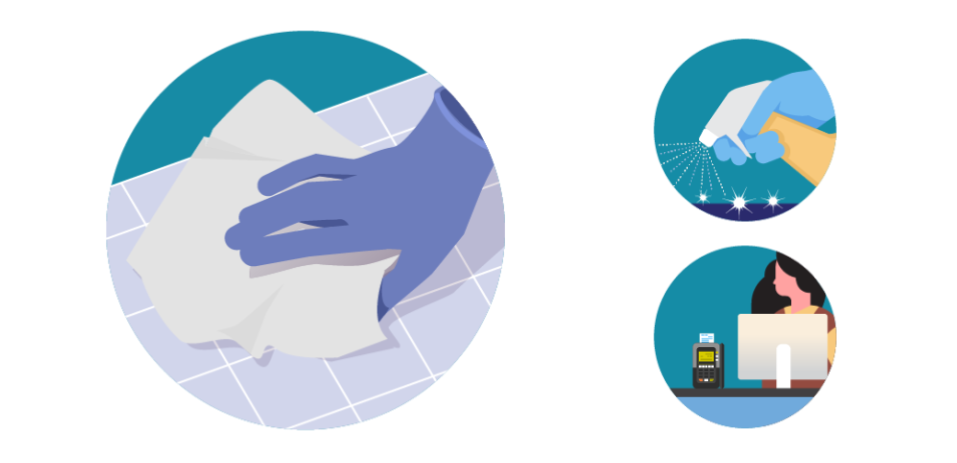
To help protect yourself from COVID-19, you should clean and disinfect your home daily. If available, wear disposable gloves to clean and disinfect.
First, clean surfaces using soap and water. Practice routine cleaning of frequently touched surfaces.
Be sure to clean high-touch surfaces including tables, doorknobs, light switches, countertops, handles, desks, phones, keyboards, toilets, faucets, sinks, etc.
Second, disinfect. Use an EPA-registered household disinfectant (https://www.epa.gov/pesticide-registration/list-n-disinfectants-use-against-sars-cov-2) and follow the instructions on the label to ensure safe and effective use of the product. Note that many products recommend keeping the surface wet for a period of time (see product label) and precautions such as wearing gloves and making sure you have good ventilation during use of the product.
Diluted household bleach solutions may also be used if appropriate for the surface. Check the label to see if your bleach is intended for disinfection, and ensure the product is not past its expiration date. Some bleaches, such as those designed for safe use on colored clothing or for whitening may not be suitable for disinfection. Unexpired household bleach will be effective against coronaviruses when properly diluted. Follow the manufacturer’s instructions for application and proper ventilation. Never mix household bleach with ammonia or any other cleanser. Leave the solution on the surface for at least 1 minute.
To make a bleach solution, mix 5 tablespoons (1/3rd cup) bleach per gallon of water OR 4 teaspoons bleach per quart of water. Alcohol solutions with at least 70% of alcohol may also be used.
Consider putting a wipeable cover on electronics, such as tablets, touch screens, keyboards, and remote controls. Follow the manufacturer’s instructions for cleaning and disinfecting. If no guidance, use alcohol-based wipes or sprays containing at least 70% alcohol. Dry surface thoroughly.
Subject: How to protect yourself from COVID-19 when refilling prescriptions
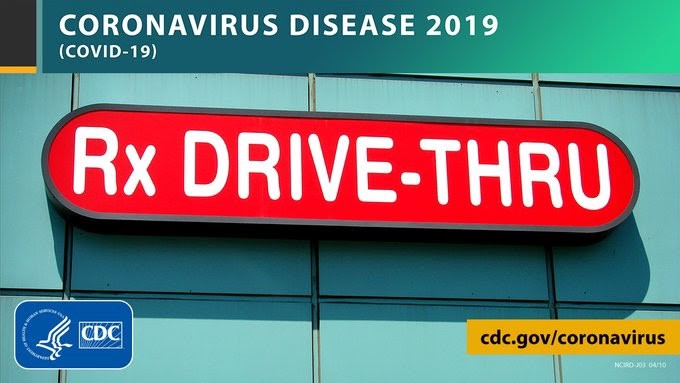
To help protect yourself from COVID-19 when refilling prescriptions, the CDC recommends that you call-in prescriptions ahead of time and use drive-thru windows. You can also use curbside services, mail-order or other delivery services.
For more tips see: https://bit.ly/3cbQH9G
Subject: Ways to cope with stress
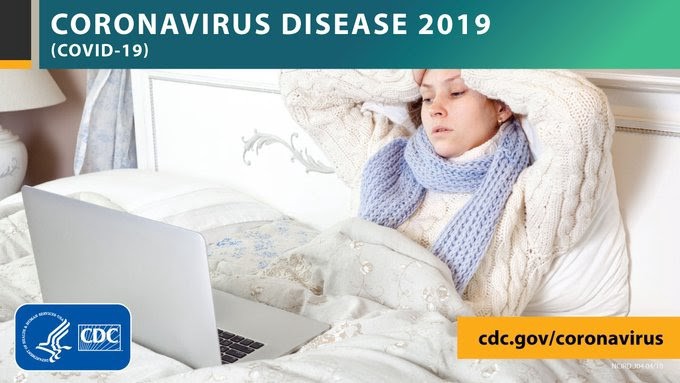
Neighbors,
The outbreak of coronavirus disease 2019 (COVID-19) may be stressful for people. Fear and anxiety about a disease can be overwhelming and cause strong emotions in adults and children. Coping with stress will make you, the people you care about, and your community stronger.
STRESS DURING AN INFECTIOUS DISEASE OUTBREAK CAN INCLUDE
- Fear and worry about your own health and the health of your loved ones
- Changes in sleep or eating patterns
- Difficulty sleeping or concentrating
- Worsening of chronic health problems
- Worsening of mental health conditions
- Increased use of alcohol, tobacco, or other drugs
WAYS TO COPE WITH STRESS
- Take breaks from watching, reading, or listening to news stories, including social media. Hearing about the pandemic repeatedly can be upsetting
- Take care of your body
- Take deep breaths, stretch, or meditate
- Try to eat healthy, well-balanced meals
- Exercise regularly, get plenty of sleep
- Avoid alcohol and drugs
- Make time to unwind. Try to do some other activities you enjoy
- Connect with others. Talk with people you trust about your concerns and how you are feeling
NEED HELP? KNOW SOMEONE WHO DOES?
If you, or someone you care about, are feeling overwhelmed with emotions like sadness, depression, or anxiety, or feel like you want to harm yourself or others.
- Call 911
- Visit the Disaster Distress Helpline, call 1–800–985–5990, or text TalkWithUs to 66746
- Visit the National Domestic Violence Hotline, call 1–800–799–7233 and TTY 1–800–787–3224
For more information and resources — https://www.cdc.gov/coronavirus/2019-ncov/daily-life-coping/managing-stress-anxiety.html
Subject: Feeling anxious or depressed? Call the Disaster Distress Helpline: 1–800–985–5990
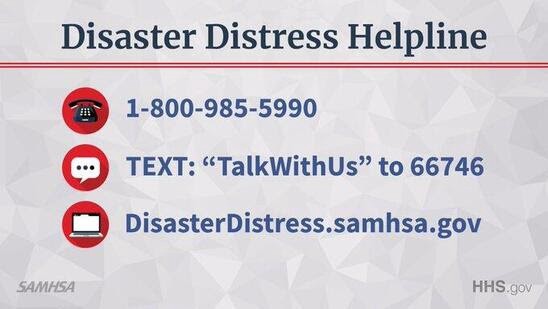
In these trying times, it’s common to feel disconnected and isolated. But remember, you are never alone.
The Disaster Distress Helpline, 1–800–985–5990, is a 24/7 hotline dedicated to providing free, multilingual, and confidential crisis support during disaster or disease outbreaks like COVID-19.
Subject: Is your child worried about COVID-19?
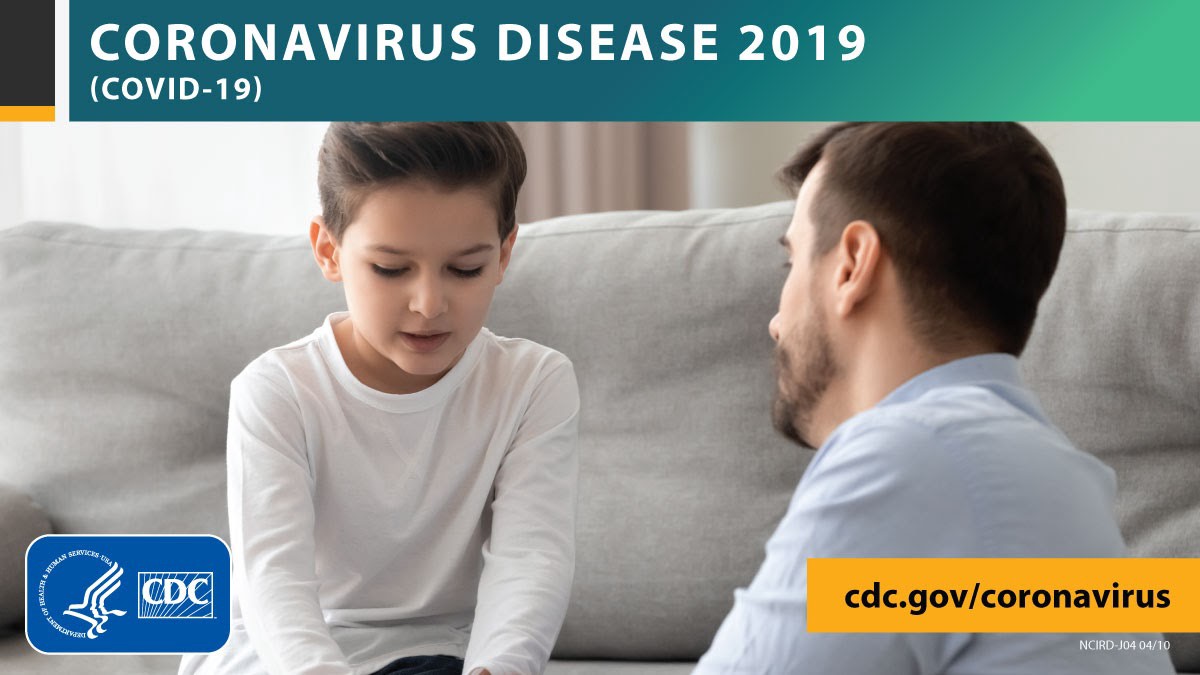
Learn the facts so you can answer questions in a way that your children will understand. Make sure to tell your children the simple things they can do to stay healthy, like washing their hands often; avoiding touching their eyes, nose, and mouth; and correctly covering coughs and sneezes. https://bit.ly/2VfEAmr
Subject: Going to a park or recreation facility?
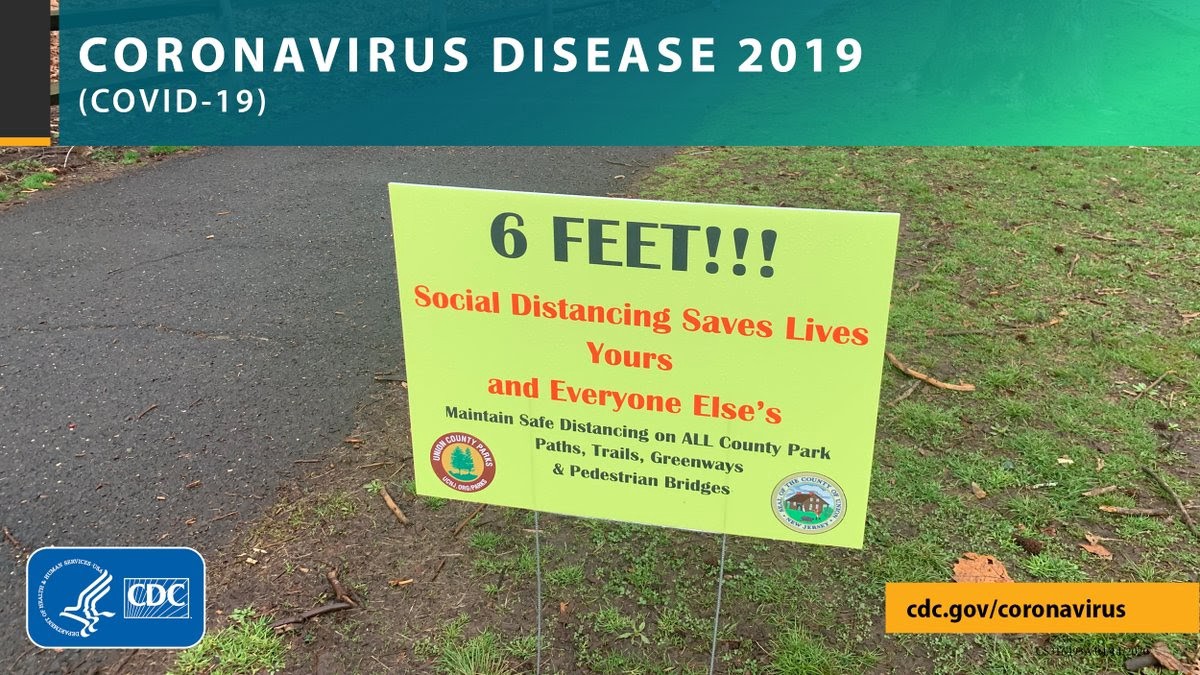
Help slow the spread of COVID-19 by staying at least 6 feet (2 meters) from other people and wear a cloth face covering to help protect others. Do not gather in groups, even when outdoors. Learn more: https://bit.ly/3ags2zp
Subject: How to file for unemployment

To receive unemployment insurance benefits, you need to file a claim with the unemployment insurance program in the state where you worked. Depending on the state, claims may be filed in person, by telephone, or online.
You should contact your state’s unemployment insurance program as soon as possible after becoming unemployed.
Generally, you should file your claim with the state where you worked. If you worked in a state other than the one where you now live or if you worked in multiple states, the state unemployment insurance agency where you now live can provide information about how to file your claim with other states.
When you file a claim, you will be asked for certain information, such as addresses and dates of your former employment. To make sure your claim is not delayed, be sure to give complete and correct information.
It generally takes two to three weeks after you file your claim to receive your first benefit check.
For more information, please visit → https://www.dol.gov/general/topic/unemployment-insurance
Subject: Birthday physical distancing + social connection
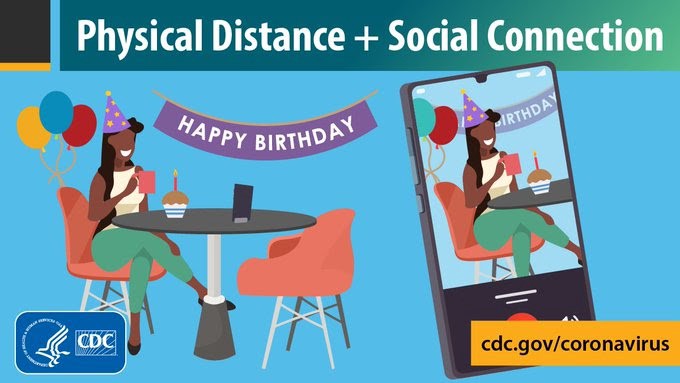
Neighbors,
Does someone have a birthday during COVID-19? Show them you care by celebrating virtually! Record a video message, make signs, & send pics. Maintain physical distance while staying socially connected. For more info see → https://bit.ly/38Wbhsw
Also, check out how neighbors are using Nextdoor to create unforgettable birthday experiences — https://blog.nextdoor.com/2020/04/08/neighbors-celebrate-socially-distant-birthdays-during-coronavirus/
Subject: Working from home? Here are some cleaning tips
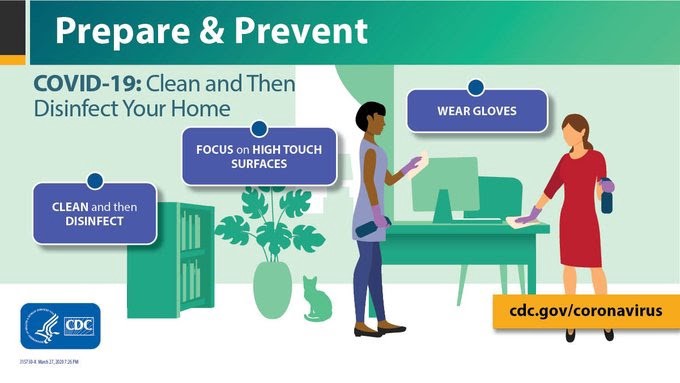
Stop the spread of COVID-19 while working from home. Clean & then disinfect surfaces such as tables, desks, phones, tablets, & keyboards. For electronic devices, follow manufacturer instructions or use alcohol-based sprays containing at least 70% alcohol. For more info see → https://bit.ly/33vrmod
Subject: Pregnancy during COVID-19
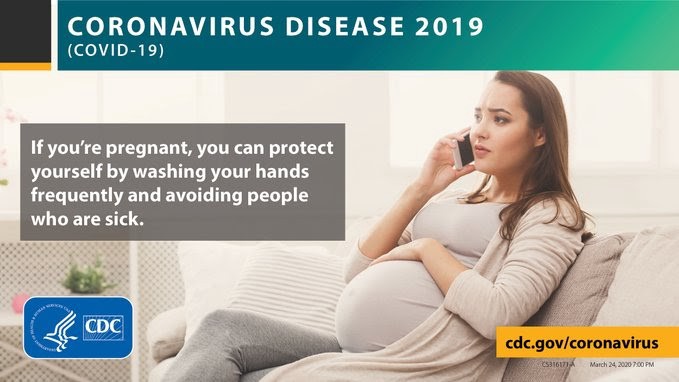
According to the CDC, we do not currently know if pregnant people have a greater chance of getting sick from COVID-19 than the general public, nor whether they are more likely to have serious illness as a result. Based on available information, pregnant people seem to have the same risk as adults who are not pregnant.
However, we do know that:
- Pregnant people have changes in their bodies that may increase their risk of some infections.
- Pregnant people have had a higher risk of severe illness when infected with viruses from the same family as COVID-19 and other viral respiratory infections, such as influenza.
Here is what pregnant people can do the protect themselves:
- Avoid people who are sick or who have been exposed to the virus.
- Clean your hands often using soap and water or alcohol-based hand sanitizer.
- Clean and disinfect frequently touched surfaces daily.
For more information visit → https://www.cdc.gov/coronavirus/2019-ncov/need-extra-precautions/pregnancy-breastfeeding.html
Subject: Shopping for food and other household essentials
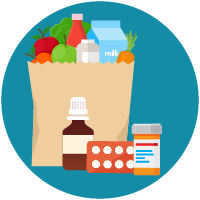
Neighbors,
Avoid shopping if you are sick or have symptoms of COVID-19, which include a fever, cough, or shortness of breath.
ORDER ONLINE OR USE CURBSIDE PICKUP
- Order food and other items online for home delivery or curbside pickup (if possible).
- Only visit the grocery store, or other stores selling household essentials, in person when you absolutely need to. This will limit your potential exposure to others and the virus that causes COVID-19.
PROTECT YOURSELF WHILE SHOPPING
- Stay at least 6 feet away from others while shopping and in lines.
- Cover your mouth and nose with a cloth face covering when you have to go out in public.
- When you do have to visit in person, go during hours when fewer people will be there (for example, early morning or late night).
- If you are at higher risk for severe illness, find out if the store has special hours for people at higher risk. If they do, try to shop during those hours. People at higher risk for severe illness include adults 65 or older and people of any age who have serious underlying medical conditions.
- Disinfect the shopping cart, use disinfecting wipes if available.
- Do not touch your eyes, nose, or mouth.
- If possible, use touchless payment (pay without touching money, a card, or a keypad). If you must handle money, a card, or use a keypad, use hand sanitizer right after paying.
USE HAND SANITIZER WHEN YOU LEAVE THE STORE. WASH YOUR HANDS WHEN YOU GET HOME.
- After leaving the store, use hand sanitizer. When you get home, wash your hands with soap and water for at least 20 seconds.
- After leaving the store, use hand sanitizer. When you get home, wash your hands with soap and water for at least 20 seconds.
- At home, follow food safety guidelines: clean, separate, cook, chill. There is no evidence that food or food packaging has been linked to getting sick from COVID-19.
- Follow these 4 steps for food safety→ https://www.foodsafety.gov/keep-food-safe/4-steps-to-food-safety
Subject: Safety tips for accepting deliveries and takeout orders
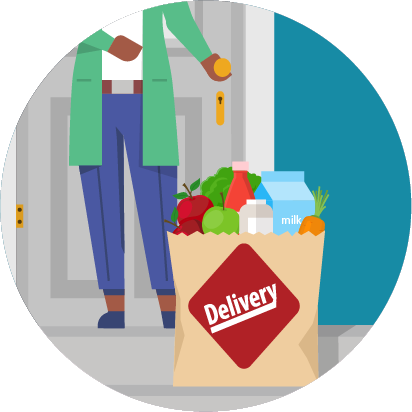
Neighbors,
Below are some tips:
LIMIT IN-PERSON CONTACT IF POSSIBLE
- Pay online or on the phone when you order (if possible).
- Accept deliveries without in-person contact whenever possible. Ask for deliveries to be left in a safe spot outside your house (such as your front porch or lobby), with no person-to-person interaction. Otherwise, stay at least 6 feet away from the delivery person.
WASH YOUR HANDS OR USE HAND SANITIZER AFTER ACCEPTING DELIVERIES OR COLLECTING MAIL
- After receiving your delivery or bringing home your takeout food, wash your hands with soap and water for 20 seconds. If soap and water are not available, use a hand sanitizer with at least 60% alcohol.
- After collecting mail from a post office or home mailbox, wash your hands with soap and water for at least 20 seconds or use a hand sanitizer with at least 60% alcohol.
Subject: Safety tips for banking and getting gasoline
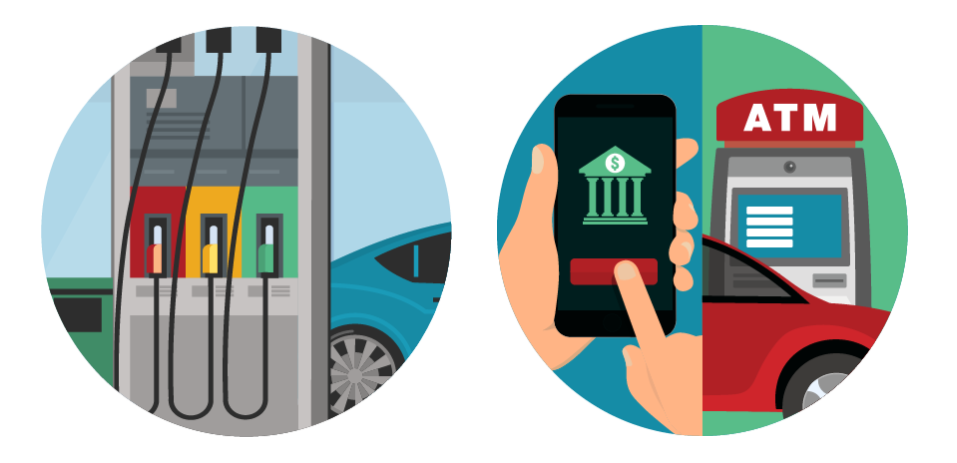
Neighbors,
Below are some tips:
BANK ONLINE WHENEVER POSSIBLE
- If you must visit the bank, use the drive-through ATM if one is available.
- Clean the ATM keyboard with a disinfecting wipe before you use it.
- When you are done, use a hand sanitizer with at least 60% alcohol.
- Wash your hands with soap and water for at least 20 seconds when you get home.
GETTING GASOLINE
- Use gloves or disinfecting wipes on handles or buttons before you touch them.
- Use gloves or disinfecting wipes on handles and buttons before you touch them (if available).
- After fueling, use a hand sanitizer with at least 60% alcohol. Wash your hands for at least 20 seconds when you get home or somewhere with soap and water.
Subject: Safety tips for going to the doctor or getting medicine
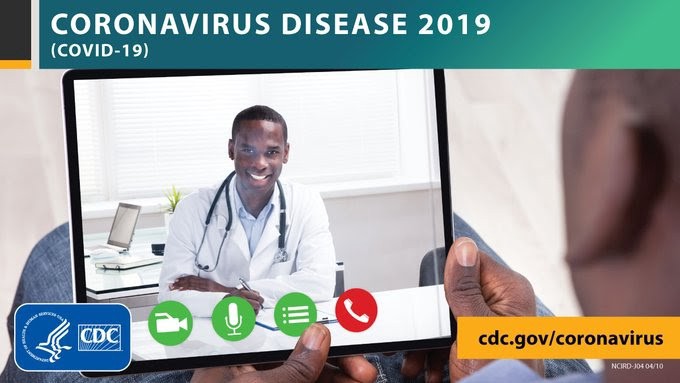
Neighbors,
Below are some tips:
TALK TO YOUR DOCTOR ONLINE, BY PHONE, OR E-MAIL
- Use telemedicine, if available, or communicate with your doctor or nurse by phone or e-mail.
- Talk to your doctor about rescheduling procedures that are not urgently needed.
IF YOU MUST VISIT IN-PERSON, PROTECT YOURSELF AND OTHERS
If you think you have COVID-19, let the office know and follow guidance.
- Cover your mouth and nose with a cloth face covering when you have to go out in public.
- Do not touch your eyes, nose, or mouth.
- Use disinfecting wipes on frequently touched surfaces such as handles, knobs, touchpads (if available).
- Stay at least 6 feet away from others while inside and in lines.
- When paying, use touchless payment methods if possible. If you cannot use touchless payment, sanitize your hands after paying with card, cash, or check.
- Wash your hands with soap and water for at least 20 seconds when you get home.
LIMIT IN-PERSON VISITS TO THE PHARMACY
- Plan to order and pick up all your prescriptions at the same time.
- If possible, call prescription orders in ahead of time. Use drive-thru windows, curbside services (wait in your car until the prescription is ready), mail-order, or other delivery services. Do the same for pet medicine.
- Check with your doctor and pharmacist to see if you can get a larger supply of your medicines so you do not have to visit the pharmacy as often.
- If you or a member of your household has signs of COVID-19, call your doctor first, instead of going to the office or the emergency department. Call 911 if you believe it is an emergency. See also: What to do if you are sick.
Subject: Take the #ICanHelpChallenge
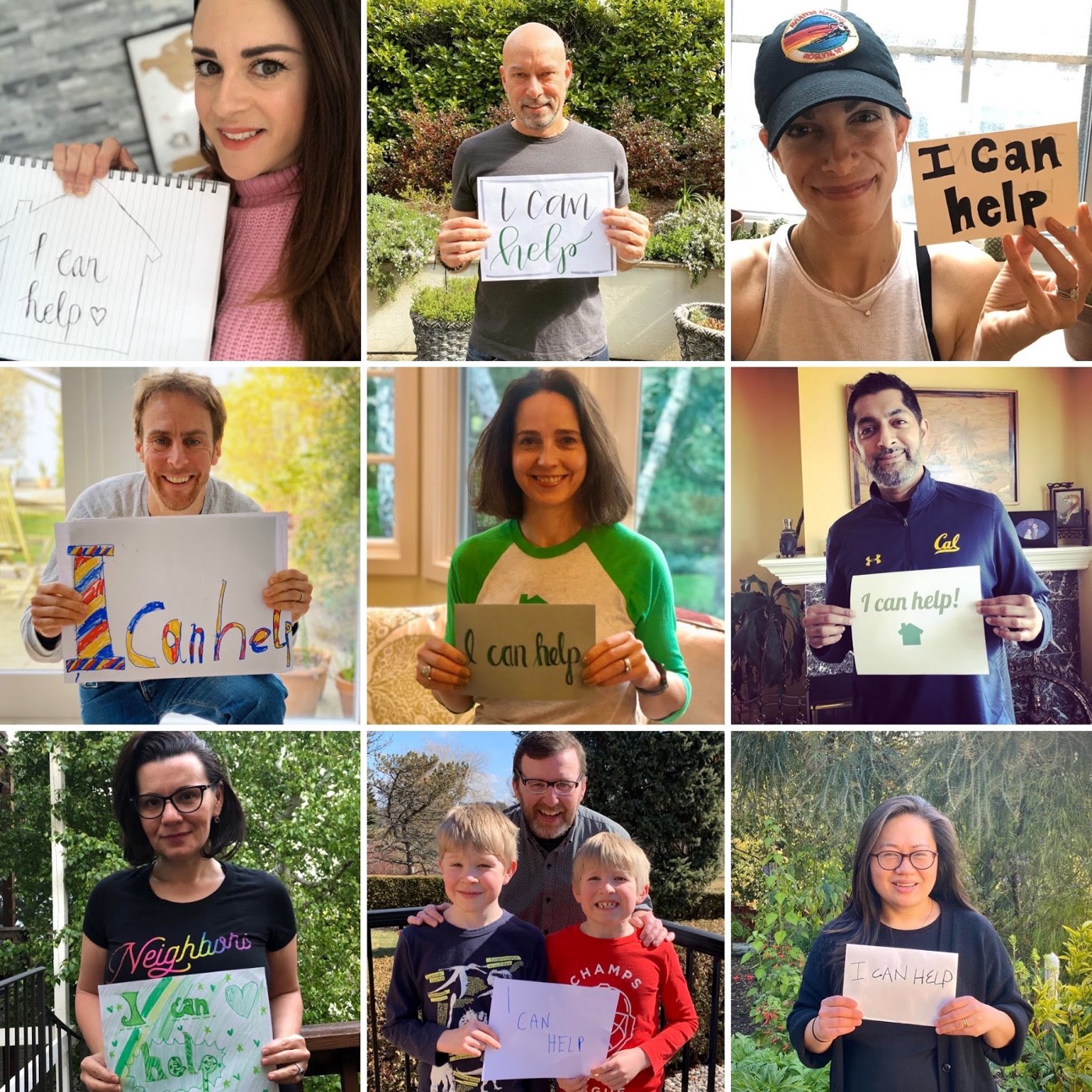
Neighbors,
As COVID-19 continues to impact our communities, it’s important to come together as neighbors and safely offer support to one another.
From running errands for elderly neighbors to organizing PPE drives for medical care workers, we have been so inspired in recent weeks by countless stories of neighbors helping neighbors from around the world.
It’s more important than ever for neighbors to find ways to safely support one another while social distancing. That’s why the [INSERT AGENCY/CITY/COUNTY NAME] is encouraging neighbors to step up and help one another by participating in Nextdoor’s #ICanHelpChallenge.
Here’s how to participate:
1. Take a photo with a sign that says “I Can Help”
2. Share how you are helping your neighbors and local community
3. Tag 3 friends and challenge them to participate with #ICanHelpChallenge and tag @Nextdoor on Nextdoor, Instagram and/or Twitter

